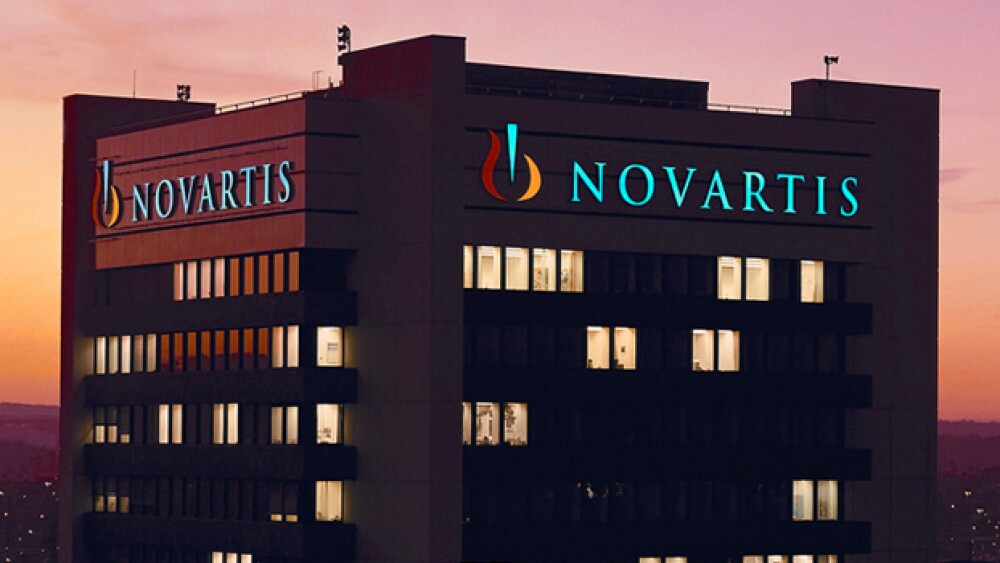Today Narasimhan and Novartis announced they were selling U.S. dermatology and generic drug assets, parts of its Sandoz division, to India’s Aurobindo Pharma for up to $1 billion. The deal includes approximately 300 products.
When Vasant Narasimhan took the reins of Swiss-based Novartis earlier this year, he started making big changes. One of the first decisions was to sell off its part of a joint healthcare venture with GlaxoSmithKline for $13 billion. Then in late-June, Novartis decided to spin off its Alcon eye care division into a separately-traded standalone company.
Today Narasimhan and Novartis announced they were selling U.S. dermatology and generic drug assets, parts of its Sandoz division, to India’s Aurobindo Pharma for up to $1 billion. The deal includes approximately 300 products. Aurobindo will initially lay out $900 million in cash followed by another $100 million in performance-based payments.
“The acquisition announced today is in line with our strategy to grow and diversify our business in the U.S.,” said N. Govindarajan, managing director of Aurobindo, in a statement. As part of the deal, Aurobindo will acquire manufacturing facilities in Wilson, North Carolina and Hicksville and Melville, New York.
Per Reuters, about 750 staffers and field representatives from the Pharmaderm branded dermatology unit will transfer to Aurobindo.
Reuters writes, “The U.S. Sandoz pills business has long been a problem child for Novartis, with price pressure hurting results and becoming a main reason the division has pared back its growth targets, most recently in July.”
“Through this transaction, we are refocusing our business,” said Richard Francis, the Sandoz division head. “Sharpening our portfolio focus in the U.S. allows us to devote more time and resources toward our strategy of bringing complex generics, value-added medicines and biosimilars to patients in the U.S., creating higher value and opening up access to important medicines where alternatives are truly needed.”
Stefan Schneider, an analyst with Vontobel, placed a “hold” rating on the company shares and wrote in a note, “We had assumed a price of one times sales for such a transaction. We realize that pricing pressure in the U.S. generics market is greater than we had anticipated, as last year’s revenues were $1.5 billion for this business and first-half 2018 revenues only $0.6 billion.”
LiveMint notes that Aurobindo was the only Indian bidder for the assets, which were announced for sale in November 2017. The acquisition makes Aurobindo the second largest generic drug company in the U.S. based on number of prescriptions. It will also make it the second biggest dermatology company in the U.S. for both generic and branded dermatology products.
The dermatology products acquired include topical antibiotics, gynecological and dermatological antifungal medications, anti-acne drugs, local anesthetics and painkillers, anti-itch medications, and a dermatological chemotherapy drug. The oral non-dermatological portfolio ranges from auto-immune diseases, anti-neoplastic drugs and hormonal therapies.
Govindarajan added, “Acquiring these businesses from Sandoz will allow us to further expand our product offering and to become a leading player in the generic dermatology market. Overall the transaction will position Aurobindo as the second largest dermatology player and the second largest generics company in the U.S. by prescriptions. We expect a seamless integration of the acquired businesses with the rest of the Aurobindo group, given the success we have achieved in our acquisitions to date.”
The deal is expected to close in 2019.
“We recognize that the transfer of ownership for a business of this size is a complex process, and we are aware that it may create some uncertainties for our associates in the U.S.,” stated Carol Lynch, president of Sandoz and Head of Sandoz North America. “It is thus a priority for us to make the transition as clear and quick as possible.”





